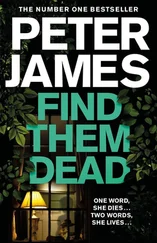Two weeks before the Obama-McCain presidential election, Dax calls Nicholle’s father to ask for his daughter’s hand in marriage. Her father cries. “I couldn’t be happier,” he says. “I’ll let you talk to Karen.” Silence over the line while he passes the phone, but his voice comes through again. “Two things, son.” It’s the first time he has called Dax son. “One. I’ll only loan you money if Nicholle asks. Two. All I care about is her happiness.” Silence over the line again. “Two and a half. You’re a Tide fan when you visit. Good luck.”
A week later, after Dax asks Nicholle to marry him under a flowering dogwood, she makes him call Sim.
“Know where I been?” Sim says, after telling Dax good job on the proposal. Dax says no. “Riverboats, man. Rivers are international waters. No rules, buddy. State, government can’t touch ’em.”
“Okay,” Dax says.
“Should get married on a riverboat. There’s one called the Gypsy. I can sing.”
“We’ll consider it, Sim.”
“Love you, Dax,” he says.
Dax passes the phone to Nicholle, who’s all smiles. “The Gypsy ?” she says. Dax stares at the floor. “You want to sing at the wedding?” She gives Dax a look — Sim is off-limits.
During their engagement Nicholle and Dax pick up books about successful marriages. They open their favorite one, The Questions You Should Ask Before “I Do,” whenever they Sunday-drive around Knoxville, where they live. Dax learns that Nicholle would never adopt, is pro-choice, thinks sex twice a week is enough, hates cats, wants three kids, doesn’t mind if he has to travel for work, doesn’t want Dax’s childhood friend Alston at the wedding, is scared of getting her mother’s cheeks, thinks Dax should remove the eel tattoo on his back, and doesn’t like it when Dax says “You know what I’m saying?” when trying to prove a point.
She learns a lot about Dax as well, at least the stuff he wants her to know — sex three times a week is about right, every person should know how to shoot a gun, kids should never have to answer the “Which parent?” question during a divorce, he hates snakes, he hasn’t determined his dream job, Rutherford and New Mexico are his dream retirement spots — but her face goes to stone when he tells her that his number-one pet peeve is when people praise God only for the good things in life.
“What the hell is up with cancer and dropped touchdown passes?” he says. “No one points to the sky and pounds their chest during chemo or when a pass slips through their fingers.”
They go at it pretty good on this topic — she invokes C. S. Lewis — and near the end he warns himself, If you’re smart, you’ll never say these things again.
All this learning about each other is fine, but the intense material comes out as they pull in their chairs at a restaurant in a white, stuccoed courtyard on their honeymoon in Savannah. They wait for their food, sipping on red wine, when Nicholle asks Dax the worst thing he has considered doing to someone else, even if just for a split second. He wonders if she’s fishing for something from his deployments and he considers the checkpoint, but all that comes to him is a mongoose darting across the road, then the girl, far away, waving. He pushes the image away. He searches his mental catalogue for relief, and it doesn’t take him long to sift through the many momentary revenge wishes to a wooded lot outside Rutherford.
Dax starts talking and the memory materializes — he was twelve, cutting down a dead pine with his father. He had taken a break and rested against the old red Dodge truck, and in a bizarre mental pulse he thought of taking the chainsaw and hacking his father. He imagined the roaring saw, the blood and limbs mixing with the sawdust, the dumbfounded look in his father’s eyes before the spinning hot teeth bit. He remembers even in that moment being ashamed and thrilled at the same time.
Now, in the Italian restaurant courtyard, he holds the saltshaker in his hand and avoids Nicholle’s brown eyes. Dax is unsure if the words have come out right.
“It’s crazy,” he says. He places his hands in his lap. “I don’t know what I’m saying. You know what I’m saying?”
She wears his favorite sundress, a white number with red and yellow flowers. She’s tanned and has her hair pulled back, her arms toned from years of swimming laps. A large party two tables over clink wineglasses. They’re all visitors.
“Stealing a baby,” Nicholle says. “I don’t know where it comes from, but there it is. I’d planned names, escape routes from the local hospital, everything. I didn’t care if it looked like me. I even thought it might be easier to take a one-year-old, not a newborn. She’d be eating solids. And it’s always a girl. I remember very clearly thinking that I could pull it off. I was fifteen, maybe. I’d keep her in my room, not eat all my food and sneak the rest to her. Her name was Jodi. I’ve always loved that name. Jodi.”
“Almost like Jedi.”
“That’s not why.”
“Yeah.”
The food arrives. Dax cuts the veal with his knife. He takes a bite and watches Nicholle move her bare arms as she negotiates her utensils into her pasta, then grabs her wineglass and gulps. They should laugh. He considers laughing.
“So,” he says. “I’m glad we’re the normal ones.”
After their honeymoon, Dax and Nicholle move into a rolling subdivision in Knoxville called Hawks Nest. About a month into their stay, the two hawks they were told about as they debated buying the home make their nest in a giant pine in their front yard.
The place is spacious and they have privacy on almost an acre — dogwoods, a pear tree, a tall row of hedges running the property lines. The neighbors are fine, but a guy who lives around the corner lets his retriever shit in their yard. One Sunday morning, Dax trims the flowering bushes in the front yard, and the neighbor comes around with the dog and waves friendly to Dax before the dog scampers ten feet onto Dax’s front yard and poops. Dax lacks the courage to say anything. He’s out-of-shape heavy and he has come to believe a fistfight hovers in every confrontation, no matter how minor. This neighbor is a large guy, like Dax, but it seems like he wouldn’t mind a fight, win or lose. Sometimes Dax sees both the neighbor and his dog rolling around on the guy’s front yard when Dax comes home from work.
Other than the shitting dog, life is good: Dax works for a local collection agency and lies to his Nashville boss most days about where he is, the hours he puts in, but he works hard enough that his boss never questions him, so he gets in a round of golf at the local course on Thursday mornings. The money is okay, and Nicholle does well at a local consulting firm, well enough for them to come out ahead a little each month. Dax is a converted Tennessee fan, but Nicholle is Alabama all the way, so they sport “house divided” license plates, half orange, half crimson. They join a coed softball league, help clean up the local park, and make the HOA meetings about a third of the time. He enjoys the routine, and for the first time he assesses himself an adult, living a regular life. Even so, they break up their regular life enough to keep everything interesting. Nicholle begins highlighting her blond hair with bright colors — she switches from pink to orange every couple of months—“Because I can,” she tells Dax. One day, after the linoleum warps in their master bathroom, Nicholle suffers the long lines at a local hardware store before deciding to bypass the registers altogether, and she walks out with four hundred dollars’ worth of beige tile on a large cart and loads the lot into their truck and drives home.
Sim phones one night and talks to Nicholle for an hour. When Dax pokes his head into the room, Nicholle waves him away.
Читать дальше












